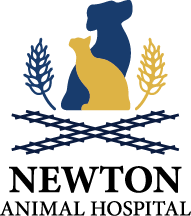Library
-
Eosinophilic granuloma complex is a term used to describe three forms of skin lesions in cats including eosinophilic plaque, eosinophilic granuloma, and indolent ulcers. The lesions most commonly occur on the lip, sometimes resulting in disfigurement, but can also develop in the mouth or on other areas of the body.
-
Feline eosinophilic keratitis is a chronic inflammatory disease of the cornea that results in the surface of the eye appearing pink, white, or chalky. It is caused by an accumulation of inflammatory cells called eosinophils. The clinical signs, appearance, diagnosis, and treatment of this condition are explained in this handout.
-
Ephedra is prescribed most often treat breathing problems and is given by mouth. Give as directed by your veterinarian. Side effects include increased heart rate, body temperature, and blood pressure, agitation, restlessness, sleeplessness, nausea, tremors, and vomiting. Do not use in pets that are allergic, pregnant, nursing, are debilitated, elderly or young, or have glaucoma, heart disease, high blood pressure, seizures, diabetes, anxiety, enlarged prostate, liver disease, kidney disease or thyroid disease. If a negative reaction occurs, please call your veterinary office.
-
Ephedrine is most commonly given by injection (and rarely by mouth) and is used off label to treat low blood pressure and certain types of urinary incontinence. Give as directed by your veterinarian. Common side effects include restlessness, fast heartbeat, and high blood pressure. Do not use in pets that are allergic to it or in pets with severe heart disease or abnormal heart rhythms. If a negative reaction occurs, please call your veterinary office.
-
Epileptic seizures in pets are a diagnosis of exclusion and may be found in any dog but there may be some breed predispositions that are more common. The cause is often unknown. A variety of medications are available to help control the seizure activity if an underlying cause is not found.
-
Epineprhine is a drug used most often in emergency situations for animals (e.g., anaphylaxis, cardiopulmonary resuscitation/CPR). It may be added to local anesthesia drugs due to its ability to cause veins to constrict, thus delaying the body’s absorption of the drugs and prolonging the duration of the local anesthetic duration.
-
Epistaxis means simply bleeding from the nose. The term can therefore cover anything from a tiny trickle down one nostril to a heavy gushing from both nostrils. Blood that appears at the nostril can originate from anywhere in the upper or lower respiratory tract including the sinuses or other closely related structures of the head.
-
Eprinomectin + praziquantel (brand name Centragard®) is a topical (spot-on) antiparasitic drug used to treat and control hookworm, roundworm, and tapeworm infections, and to prevent heartworm disease in cats and kittens that are at least 7 weeks of age and weigh at least 0.8 kg (1.8 lb). Do not use in cats known or suspected to have two copies of the MDR1 gene mutation.
-
Horses and ponies are efficient herbivores and one of the key adaptations that evolution for a life of grazing has equipped them with is a set of hardwearing and specialized teeth.
-
There are four Herpesviruses that are widespread in the horse environment and that are associated with a variety of disease syndromes in horses. They are called Equid Herpesviruses 1, 2, 3 and 4 (EHV-1, EHV-2, EHV-3 and EHV-4).


